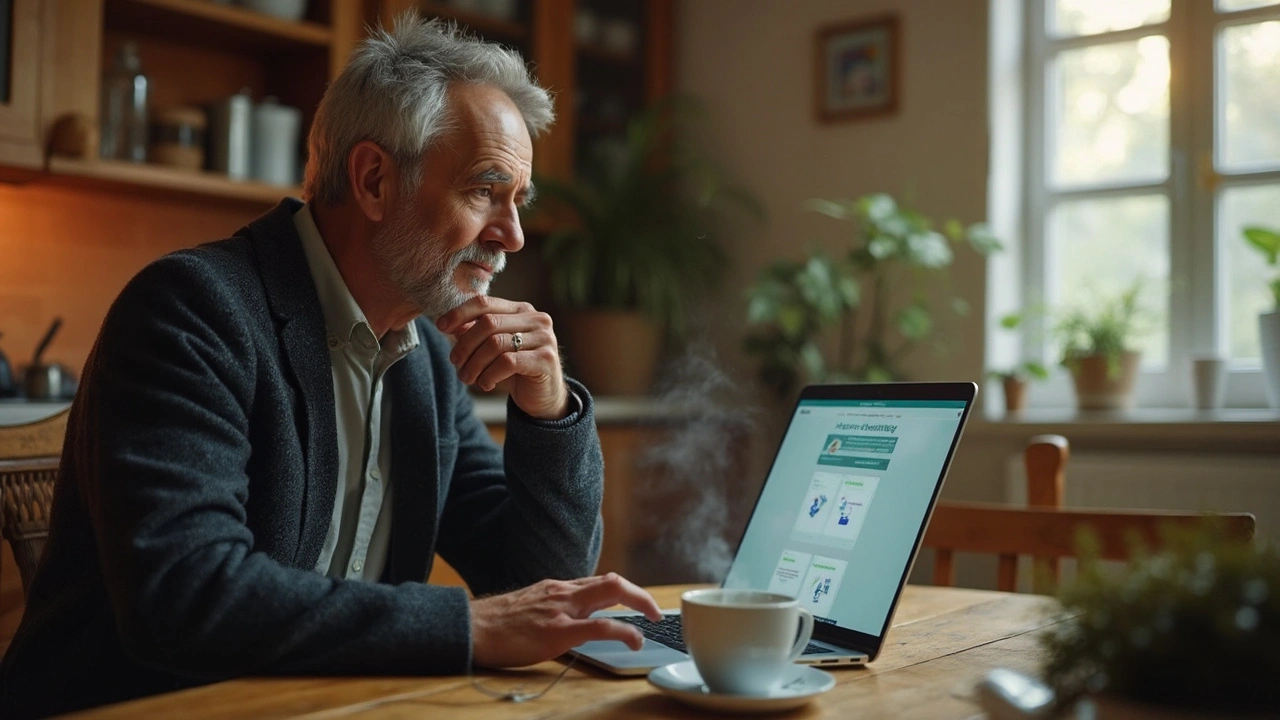Licensed online pharmacy: How to find a safe, licensed source
Buying medication online can save time and money — but a wrong choice can be risky. A licensed online pharmacy follows the law, asks for a valid prescription, lists a real pharmacist, and shows verifiable licensing. Below are clear, practical steps to spot a legit pharmacy and avoid scams.
How to verify a licensed online pharmacy
First, find the pharmacy license number and the issuing state or country on the site. Then check that number on the state board of pharmacy website or the regulator in that country. In the U.S., look for NABP VIPPS accreditation or listings on LegitScript and PharmacyChecker. If the site refuses to share its license info, don’t buy.
Next, confirm they require a prescription. Legit pharmacies will ask you to upload, fax, or mail a doctor’s script, or they'll offer a telehealth consult that results in a prescription. If the site sells controlled drugs without one, it’s illegal and unsafe.
Call the pharmacy. Ask to speak to the pharmacist about your medication. A real pharmacy answers questions, explains side effects, and gives clear contact info. Also check for HTTPS on checkout, a clear privacy policy, and visible return/refund rules.
Red flags and quick safety checks
Watch out for prices that look too good to be true. Fake sellers lure buyers with huge discounts and bulk offers. P.O. boxes, missing physical addresses, overseas-only phone numbers, or no pharmacist contact are major warning signs. Be cautious with ads on social media that push quick sales or auto-refill signups without prescription checks.
Use verification tools: search the site on PharmacyChecker, NABP, or LegitScript. Read independent reviews but be careful — fake shops post fake praise. Keep records of your order, including lot numbers, photos of packaging, and receipts. These help if you need to report a problem or ask for a refund.
If you order from an international pharmacy, know your local import rules. Some countries allow a short personal supply; others don’t. Customs can seize packages and returned medications may be unsafe. When in doubt, choose a pharmacy licensed in your country or one recommended by your doctor.
If something goes wrong — wrong pill, bad packaging, no pharmacist support — stop taking the medicine and contact your healthcare provider. Report the site to your state board of pharmacy, the FDA (if you’re in the U.S.), or local consumer protection agencies. Reporting helps protect others.
Licensed online pharmacies can be safe and convenient if you verify them first. Follow the checks above, use a payment method with fraud protection, and keep your doctor in the loop. A little time spent verifying a pharmacy can prevent big health and financial problems later.
Is CanadaDrugWarehouse.com really as reliable as it claims? This deep-dive explores its licensing legitimacy, safety of your payment data, and reveals what real customers say. Packed with facts about international medication orders and pharmacy rules, this guide helps U.S. buyers find peace of mind. Learn what to watch out for and discover tips for safer online prescription shopping. Read up before you buy.

